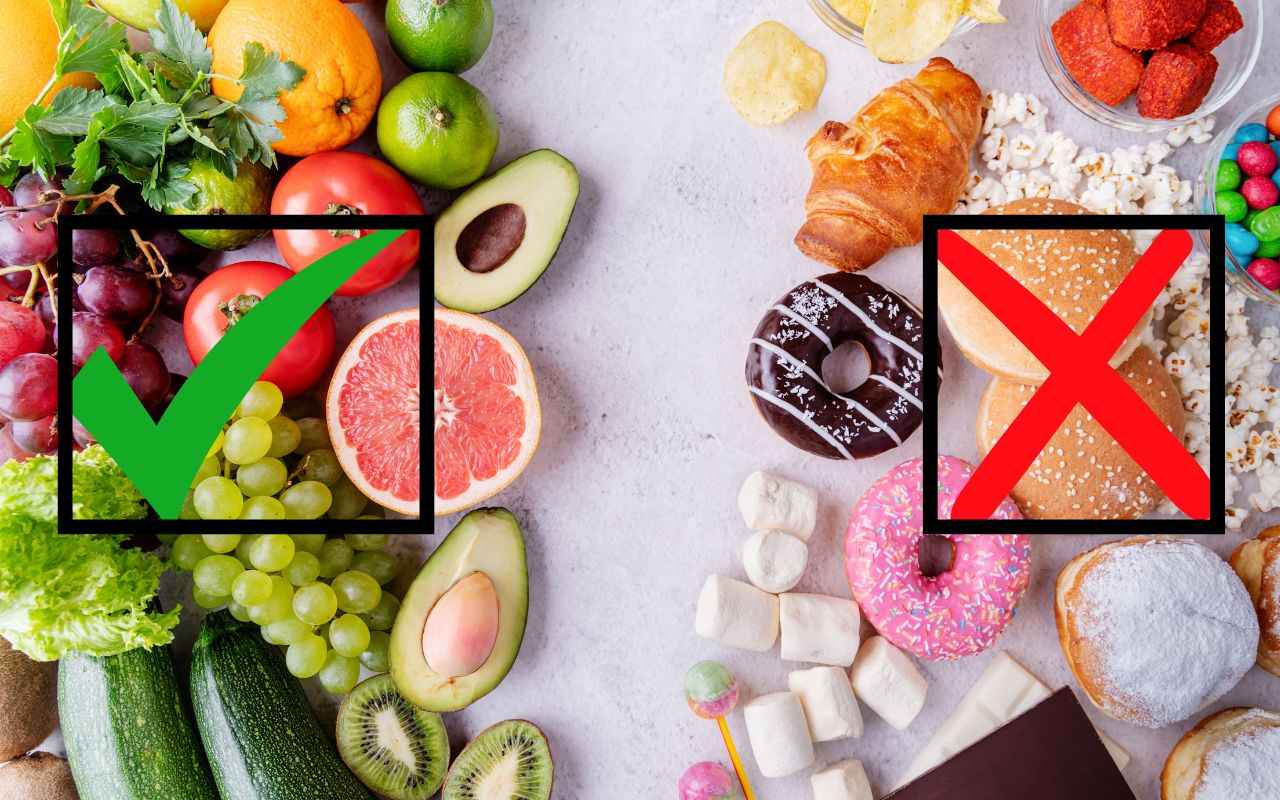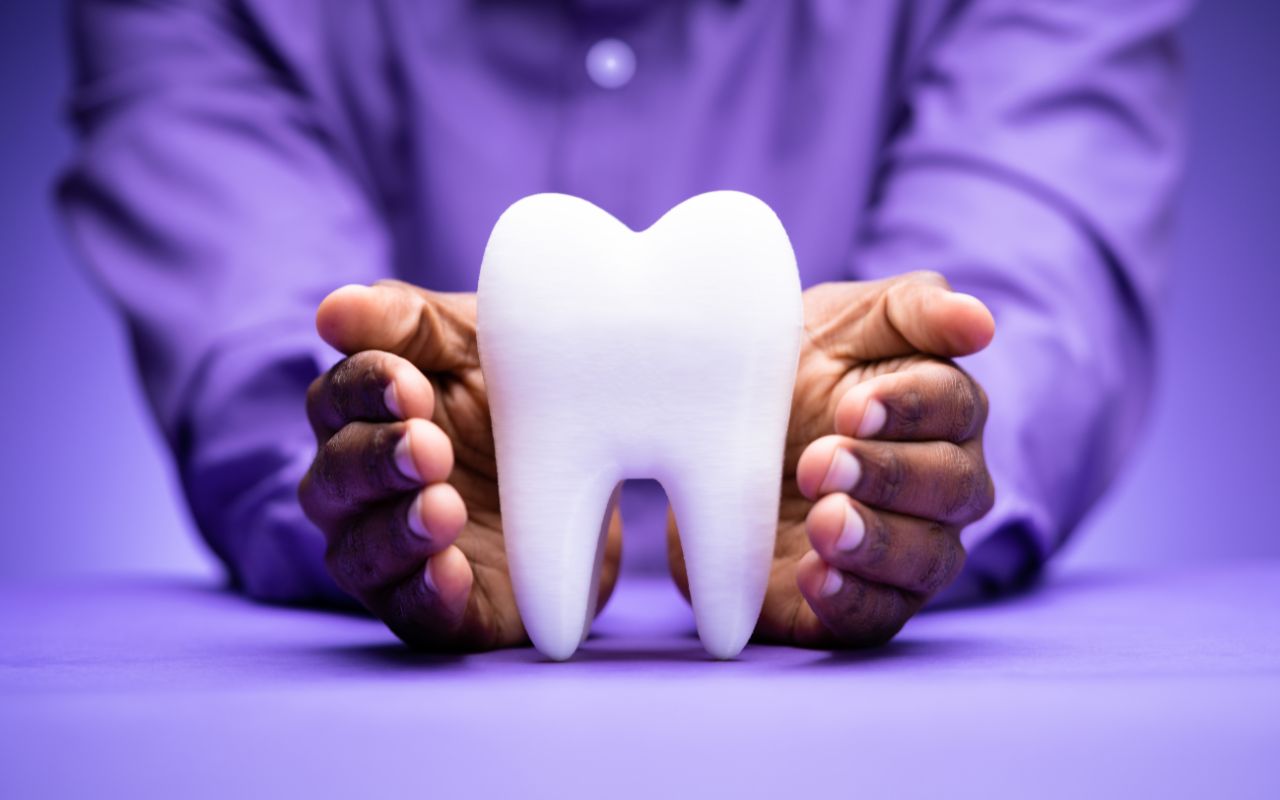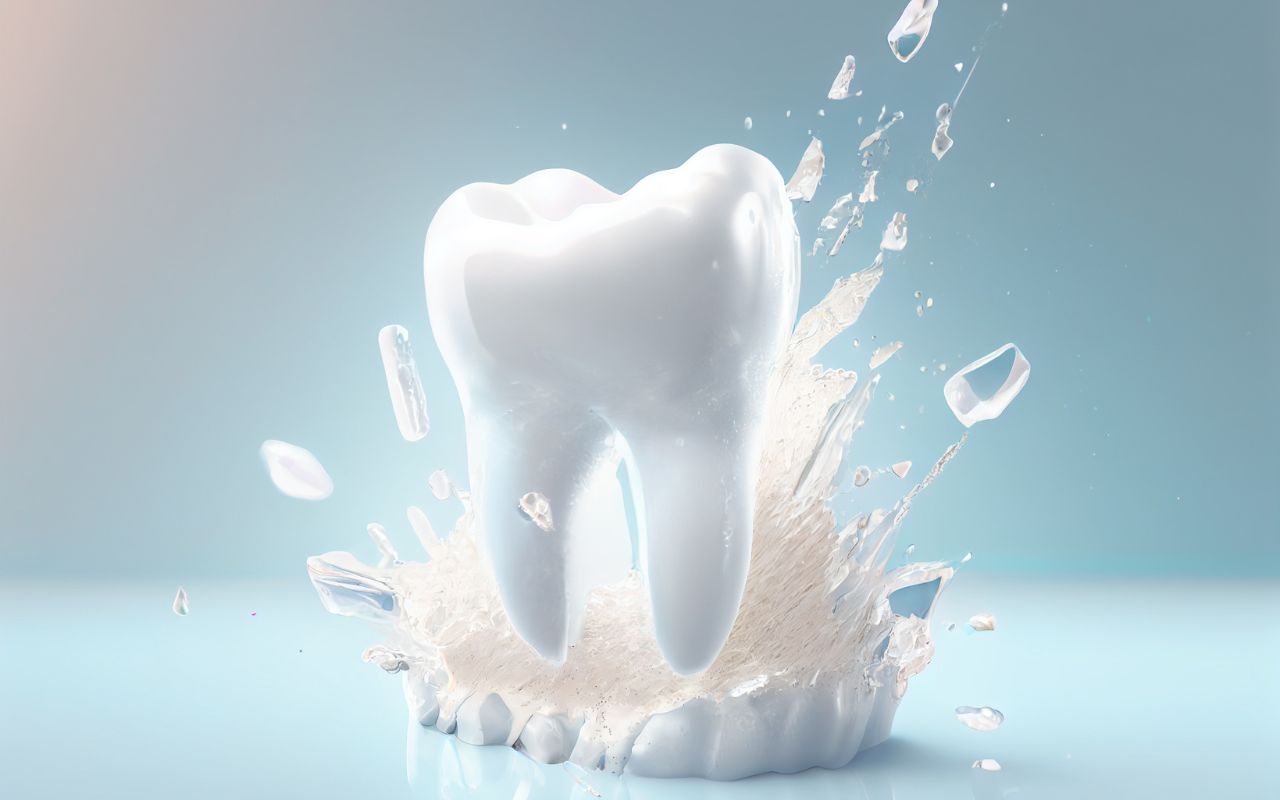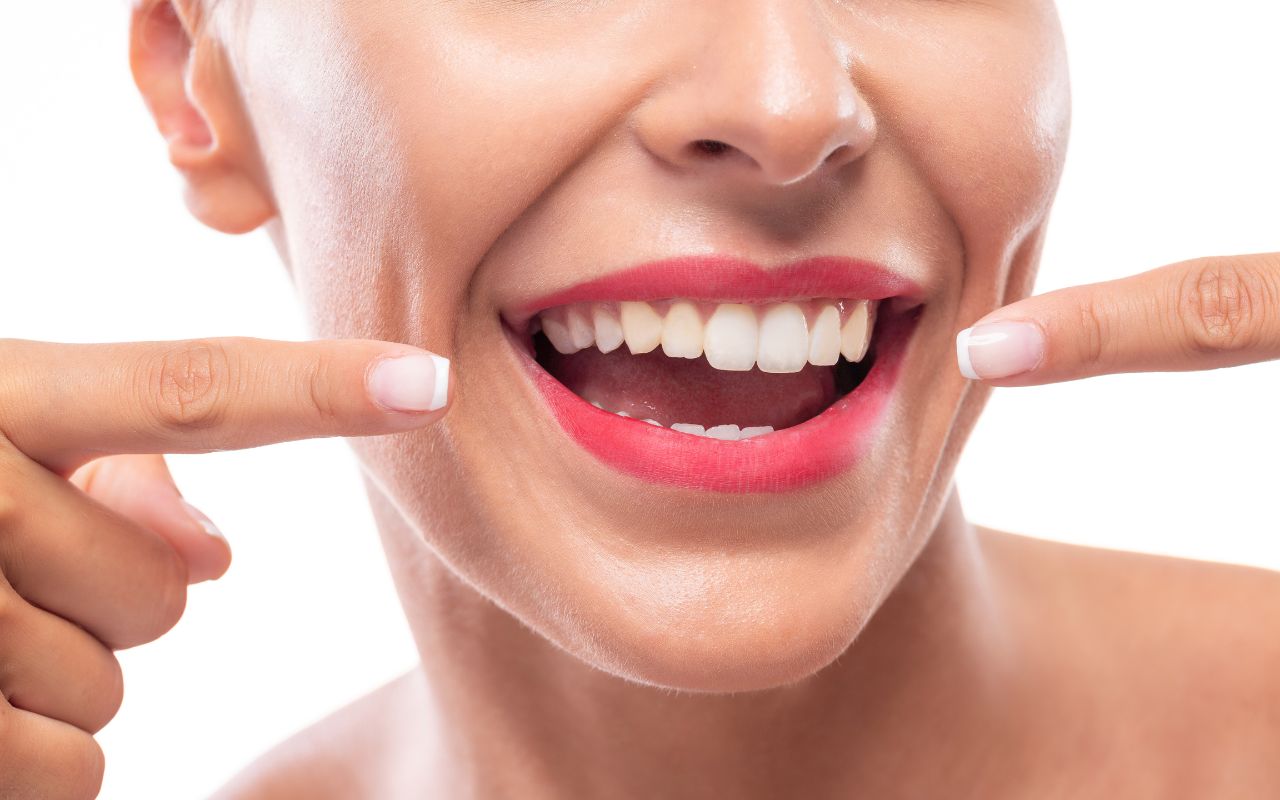Strong teeth help reduce the risk of cavities and damage from everyday wear and tear. There are several things you can do for naturally stronger teeth using our strong teeth tips.
How To Make Your Teeth Stronger Naturally Through Diet

Foods and drinks for stronger teeth include:
Dairy: Cheese, milk, and yogurt help maintain healthy teeth in several ways. First, cheese is high in calcium for bone density, and casein which helps strengthen tooth enamel. Phosphate balances pH levels in the mouth to maintain tooth enamel and improve saliva production to wash bacteria out of your mouth. Milk is also rich in calcium and elements that help lower acids, reducing the risk of tooth decay. Finally, yogurt has calcium and probiotics to help prevent decay, bad breath, and gum disease.
Water: Most local water systems contain fluoride to fight cavities while assisting in distributing nutrients to your teeth. Water also helps flush out food debris from your mouth while keeping your oral tissues hydrated to enhance saliva levels.
Crunchy Veggies: Raw veggies help keep your teeth surfaces clean by naturally and gently scrubbing your teeth as you chew. They also contain a lot of water, which helps stimulate saliva and remove debris and bacteria. All that chewing action and nutrient boost of essential vitamins and minerals, including vitamin C, calcium, and keratins, help your teeth become stronger.
Leafy Greens: Eating more spinach, lettuce, kale, etc., provides calcium, folic acid and other vitamins and minerals to promote tooth strength.
Apples and Pears: These hard, fibrous fruits work like raw crunchy vegetables that help neutralize the citric and malic acids in your mouth to reduce the risk of tooth decay.
Nuts: Nuts such as almonds have calcium and phosphorus, while Brazil nuts and cashews can help fight bacteria. Other nut-healthy nutrients include fiber, folic acid, iron, thiamine, magnesium, iron, niacin, vitamin E, vitamin B6, potassium and zinc. That’s a lot of powerful nutrition that promotes tooth health.
Fatty Fish & Tofu: Fatty fish and tofu are packed with phosphorus, which helps protect tooth enamel.
Tea and Coffee: These popular beverages contain polyphenols, an antioxidant that helps fight gum inflammation to help keep your teeth firmly planted in your gums and jawbone.
Avoid Unhealthy Eating Habits

While adding more healthy foods to your diet helps strengthen your teeth naturally, unhealthy foods can counteract those benefits. They create a sugary and acidic environment ideal for bacteria to thrive and break down tooth enamel. Therefore, tips for naturally stronger teeth include avoiding the following unhealthy eating habits:
- Snacking between meals on sugary, acidic foods
- Drinking sugary drinks such as soda, soft drinks, and sports drinks
- Drinking acidic juices such as lemon, lime, or grapefruit
- Eating too many sweets, including candies, pastries, and other desserts
- Drinking too much alcohol
- Chewing non-food items like ice, pens, pencils, your fingernails, etc.
- Eating excessively hard foods like peanut brittle
After eating unhealthy snacks, rinse your mouth with water or mouthwash. Avoid brushing your teeth for at least 60 minutes after a sugary meal or snack or else you can force the sugar and acids further into your teeth.
How Do I Strengthen My Tooth Enamel?

One of the most important things you can do to strengthen your tooth enamel is to adopt an effective home oral health routine. This includes choosing fluoride products for your toothpaste and mouthwash, brushing twice a day, and flossing at night. You can also ask your dentist about specific enamel-building toothpaste products. Scheduling your professional cleanings and checkups twice a year is also important as it ensures any plaque in hard-to-reach places is removed to keep your teeth and gums healthy.
Your dentist and hygienist will also monitor your teeth and gums to watch for red flags that indicate you’re experiencing enamel erosion so they can recommend treatment to keep your teeth strong. Finally, your hygienist will also offer oral hygiene tips to avoid damage to your enamel, including:
- How to brush gently
- Advice on the right type of soft-bristled toothbrush to use
- How to clean between your teeth using the best tool for you, whether it is floss, a flossing device, or an interdental brush
- Recommendations on the best toothpaste for your needs
Is It Possible To Remineralize Teeth?

Your body uses remineralization to repair your teeth naturally by taking calcium and phosphate minerals from your saliva and depositing them in your enamel. Unfortunately, you lose minerals over time, which is the natural demineralization process that occurs as you eat and drink, exposing your teeth to bacteria. Remineralization replaces some of the minerals you lose, so you can help maintain tooth strength.
However, bad habits such as poor oral hygiene, smoking, and an unhealthy diet can contribute to demineralization, which means your remineralization process isn’t effective enough. You can remineralize your teeth by using the tips we mentioned above, such as improving your diet, following a strict oral health care regime, and visiting your dentist. However, once cavities have formed, remineralization isn’t possible in areas where the enamel is completely eroded away. When decay has set in, the only solution is restoration, such as fillings for less serious decay, and treatments such as root canals and crowns for deeper, larger cavities or infections.
How Will I Know Remineralization Is Working?

You can watch for signs that remineralization is working, including:
- Reduced sensitivity
- Fewer white dots on your teeth
- A smoother feeling on your teeth
Is There Anything Else I Can Do To Strengthen My Teeth?

Chew sugarless gum to help promote tooth remineralization. Sugarless gum can help by increasing saliva production to avoid dry mouth while removing plaque, sugar, and carb residue from your teeth. Dry mouth happens when you aren’t producing enough saliva, which can increase the risk of cavities.
Also, your saliva contains phosphate and calcium, which can help with remineralization. Choose gum containing xylitol and sorbitol to see the full benefits. It’s a great way to curb your desire for sugar, freshen your breath, and even provide a nice little treat between meals.
If your teeth appear yellow, have white spots, have become more sensitive, or feel very rough, you may have enamel erosion. Call 905-775-5307 today to schedule an appointment, or click here to request an appointment.
